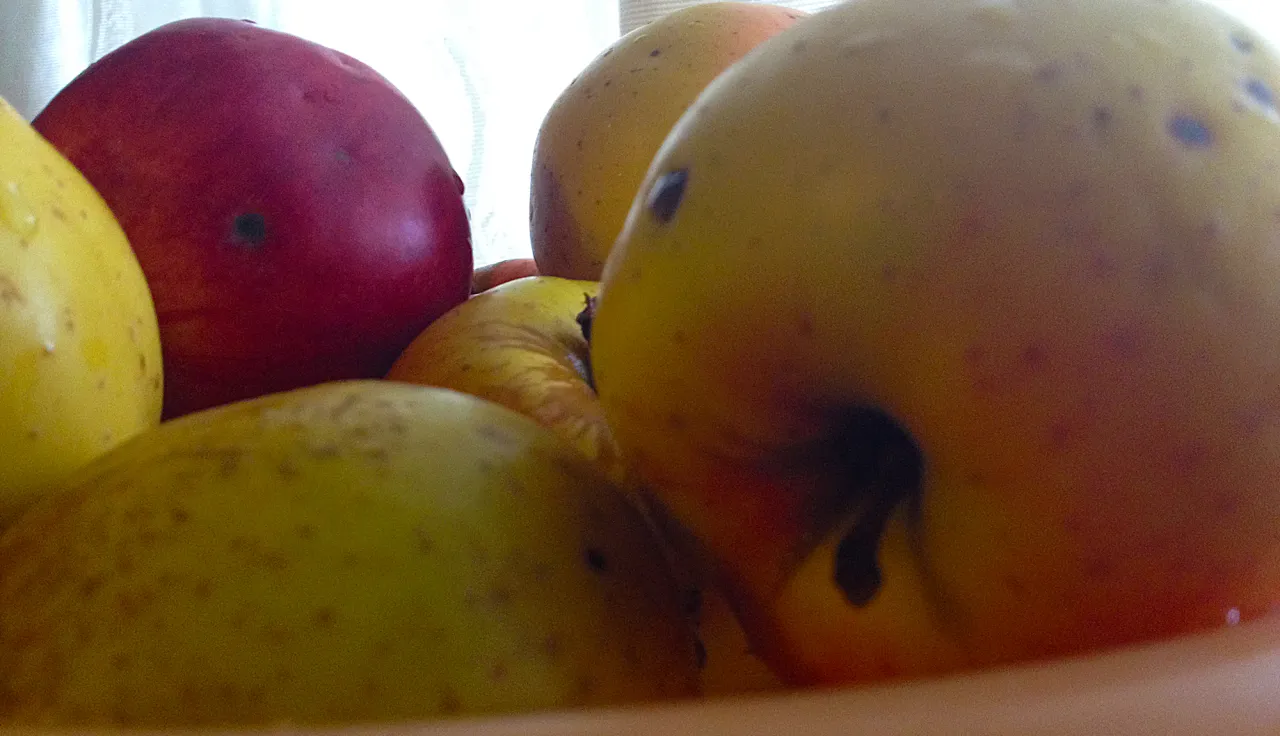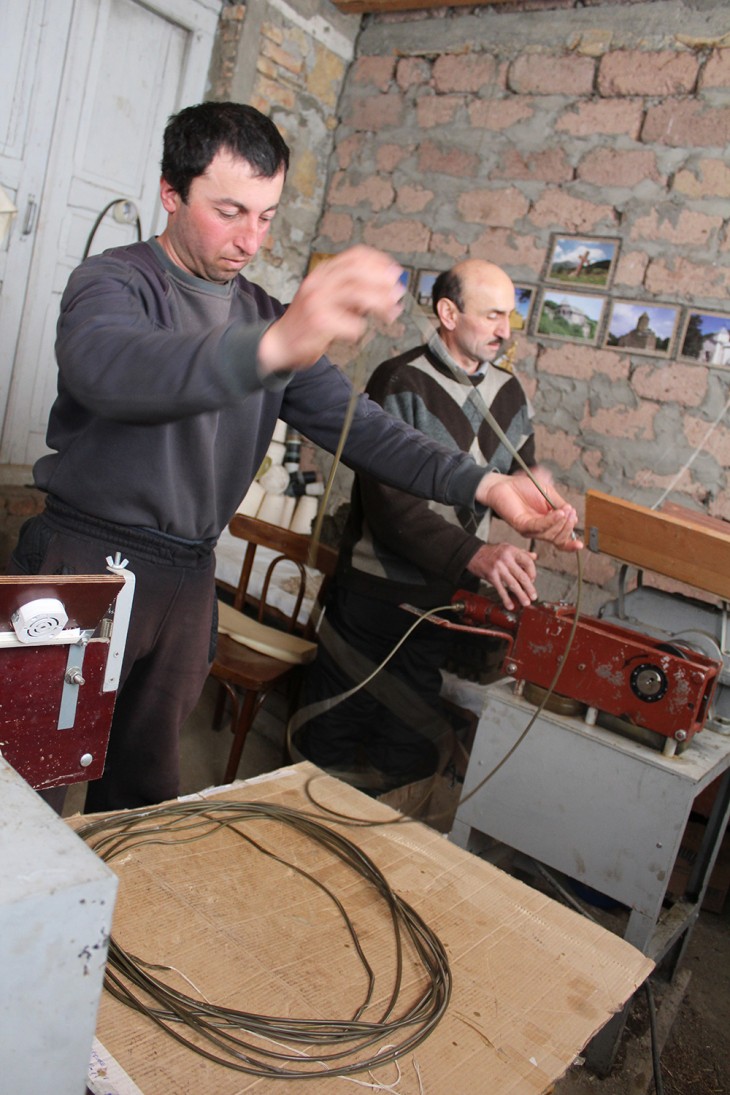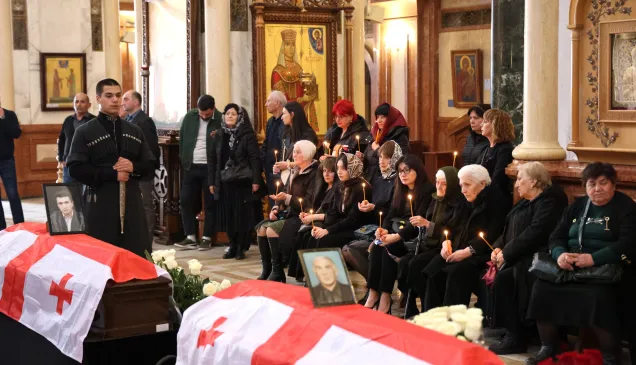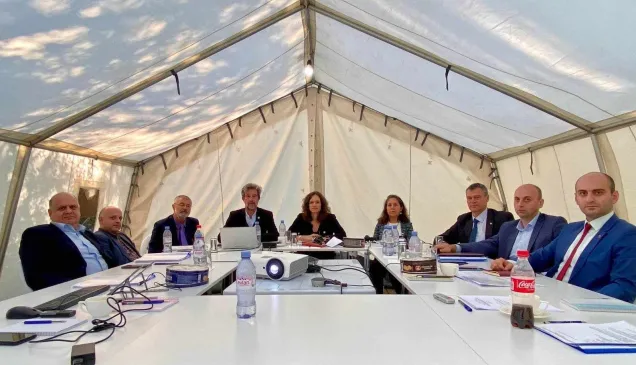South Ossetia: Mine victim produces sweetness and light

Avtandil lost a leg to one of the universal consequences of armed conflict – landmines. But he continues to run his farm, with ICRC support.
As I set out for Monaster, named after the nearby monastery, I am nervous about the idea of me, a healthy person, interviewing somebody forced by sudden disability to rethink his life and start living according to a new set of rules.
We drive along a country lane made almost impassable by the mucky spring weather. The incessant drizzle, the almost deserted village, the bare trees – none of them reassure me.
We are welcomed by our kindly host, a neatly turned-out middle-aged man. There is a bowl of apples on the table. Golden, with brown spots. "Are these from your orchard?" I ask. "Yes," my host replies. Sadly, he continues, "You know, some years I used to harvest ten tonnes of apples. Now I don't have the strength to look after the trees."

Monaster, South Ossetia. Avtandil (on the left) prepares the wick for his candles. CC BY-NC-ND / ICRC / M. Tedeti
One day, in 2006, Avtandil went into the forest to gather firewood, which he always brought back on an ox-cart. A mine exploded, tearing off one of his legs. Bleeding profusely, he tied himself onto some logs with a chain and the oxen dragged him home, with the logs acting as skids. Avtandil spent a month in hospital, undergoing several operations. His wife left for the Georgian city of Rustavi, taking their daughters with her. The occasional phone call is his only contact with them now.
Avtandil continues to run a large house, keep cows and сalves and maintain a well-tended vegetable garden. "The tractor the Red Cross gave me is a great help. I even lend it to my neighbours." As well as helping Avtandil make use of the physical rehabilitation centre in Vladikavkaz, the ICRC has given him a mini-tractor to help him сultivate his land, as part of our microeconomic programme.
"I came to like growing sugar beets," he tells us. "I harvest them myself. No one is rushing me, so I gather the ripe beets into one place, and there's always someone to help me transport them. I eat some myself and share some with other people."
The situation with the cattle is a little trickier. But Avtandil copes. "I don't get much milk from my cows, just enough to make some cheese and feed the calves. Last year I raised two piglets and sold them," he explains. "I was asked to sell my oxen but I said 'no.' How could I sell them? They saved my life."
The room next door is a workshop, with two machines for making church candles. We've always been curious about how candles were made, so we ask Avtandil for a demonstration. He leans his crutches against a chair and gets to work. "A couple of years ago, a priest brought me this equipment. My neighbour and I execute small orders for the church." Bars of wax are fed into the machine, which looks like a meat-grinder. Next to it there is a spool of coarse cotton thread for the wick. A machine cuts the long candle into separate candles, and Avtandil's fellow worker carefully puts them into bundles. Avtandil wraps up a dozen candles for each of us. "I know from my own experience how often the Red Cross helps people. Only light these candles for good deeds and for joy."



